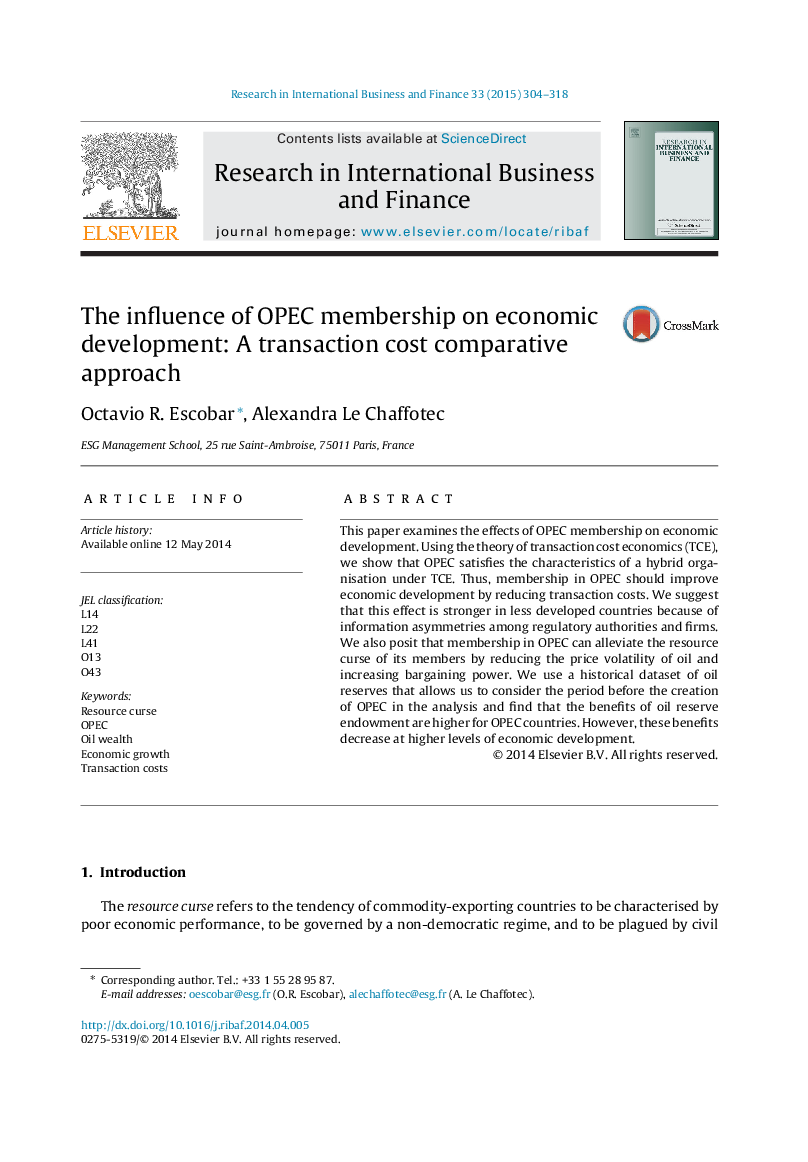| Article ID | Journal | Published Year | Pages | File Type |
|---|---|---|---|---|
| 1003563 | Research in International Business and Finance | 2015 | 15 Pages |
•We study oil production through the prism of transaction costs economics.•We show that OPEC satisfies the characteristics of a hybrid organisational form.•OPEC membership would improve economic development by reducing transaction costs.•OPEC membership would reduce the oil curse by increasing bargaining power.•We validate our propositions using historical dataset for the 1930–2003 period.
This paper examines the effects of OPEC membership on economic development. Using the theory of transaction cost economics (TCE), we show that OPEC satisfies the characteristics of a hybrid organisation under TCE. Thus, membership in OPEC should improve economic development by reducing transaction costs. We suggest that this effect is stronger in less developed countries because of information asymmetries among regulatory authorities and firms. We also posit that membership in OPEC can alleviate the resource curse of its members by reducing the price volatility of oil and increasing bargaining power. We use a historical dataset of oil reserves that allows us to consider the period before the creation of OPEC in the analysis and find that the benefits of oil reserve endowment are higher for OPEC countries. However, these benefits decrease at higher levels of economic development.
Graphical abstractFigure optionsDownload full-size imageDownload as PowerPoint slide
